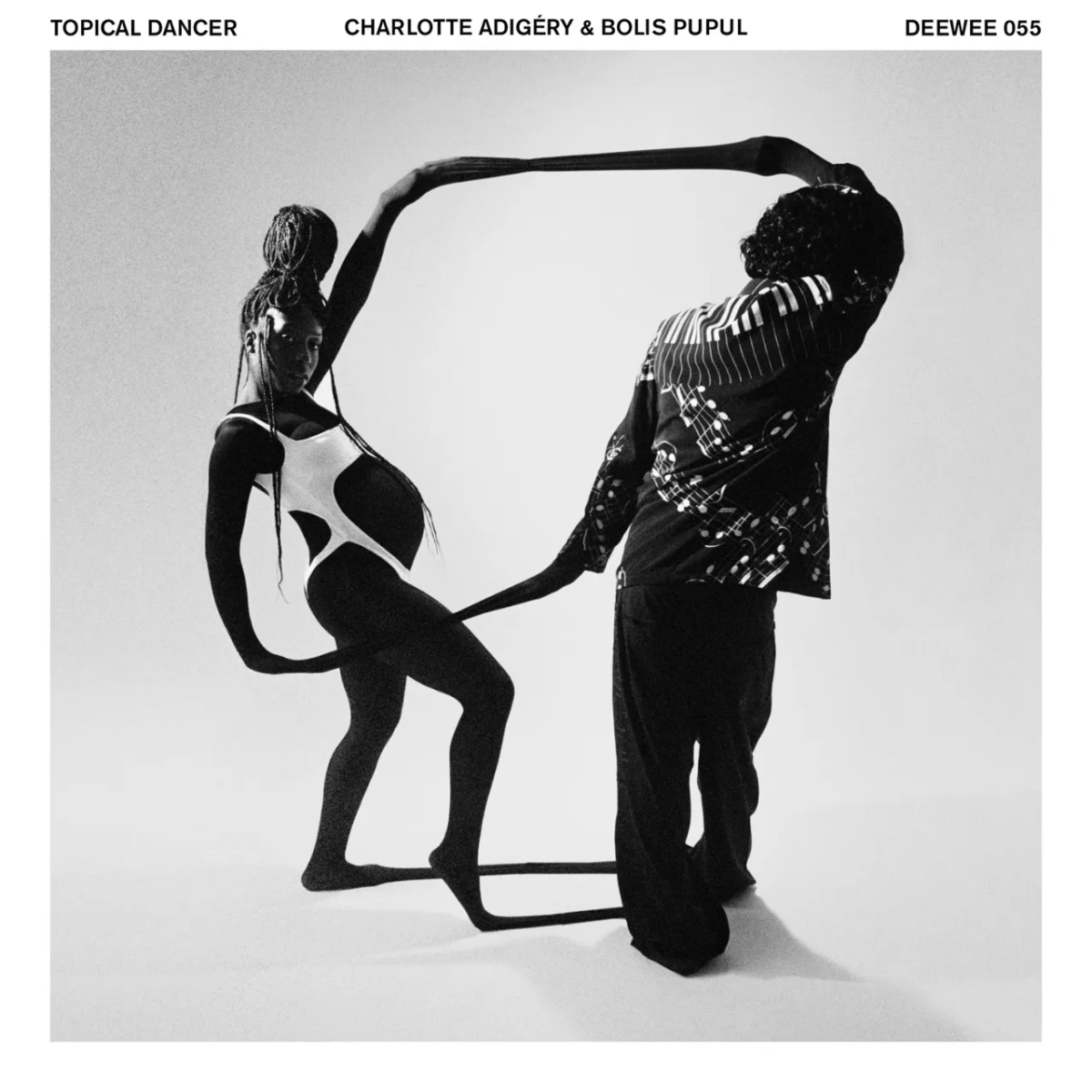One of the most popular perceptions of “pop music” is that of a shallow, clichéd genre with little artistic value. That doesn’t mean that artists aren’t trying to buck this perspective by using the upbeat, repetitive sounds and lyrics that define the genre to discuss social and cultural issues.
“Topical Dancer” is the satirical, irony-laced debut album released in March 2022 under DEEWEE and Because Music by Charlotte Adigéry and Bolis Pupul. This duo from Ghent, Belgium utilize an upbeat electropop sound that contrasts heavily with their socially-conscious lyrics about racism and sexism (among other issues).
Still, that dichotomy helps to bring humor into the album without sacrificing nuance in their lyrics or musical quality. “We see pop music as a vehicle to say something,” Bolis said in an interview with The Guardian’s Kadish Morris.
“Do you speak Esperanto?”
We’ll start with Charlotte’s address to the audience that opens the album: why do you think you’re so much better than everyone else? The first track after the intro, “Esperanto”, lets Charlotte vent her frustrations with many people who claim to be “woke”. In the track’s first half, Charlotte asks listeners to consider whether they simply pretend to empathize with the plights of marginalized communities.
“Are you as open-minded behind closed doors?
Would you join forces in this holy war?
Are you as offended when nobody’s watching?”
Lyrics from “Esperanto” by Charlotte Adigéry and Bolis Pupul
As backhanded insults toward the people she’s questioned throughout the first half of the song, Charlotte pivots into relaying many of the substitutions in language these people make when talking about people often subject to discrimination (Black people, Latinos, Asians and women, specifically).
“And then, it hit me”
This may just be my most played song off “Topical Dancer”, and it’s the one that drills into you most with its blunt messaging about love in western society. The song in question is “It Hit Me”, the fifth track on the album and the first vocal appearance of Bolis Pupul.
From the first 20 seconds of the song, the duo greets listeners with haunting, eerie synths that unnerved me at first but set up an uncomfortable tone that beautifully supplements the three stories in the track. And then, we hear a whistle as Charlotte starts her first story. At just 13 years old, a couple of men catcalled her on her way to field hockey practice, which she explains in full detail to listeners. Eventually, she realizes just how she’s been sexualized not just by these men but by a society that encourages shallow sexual appeal.
Bolis then delves into his own experiences of dealing with insecurities about his appearance, which he struggles to see how any woman could find attractive. He realizes at the end of his story how toxic it is for him to worry so much about every aspect of how he looks, but again society promotes this obsession with physical appearance.
Finally, Charlotte recalls a date with a boy named Stefaan where she follows flirting advice from a teen magazine. The date goes south, Stefaan leaves her, and it hits her how weird the flirting advice in a teen magazine is. Why is love something marketed to people as inherently sexual, looks-based, and (especially) targeted towards minors?
“This is not a cliché”
“Ceci n’est pas un cliché” is the most popular song off “Topical Dancer”, and it serves as a good summary of the goal for the album as a whole. Charlotte spends the entirety of this song rattling off clichés in pop songwriting: she’s “down on my knees begging you please” and spelling out words like love, which was especially popular in the mid-to-late-2000s.
However, the real punch of this track lies in the chorus: “I wanna make you feel real nice / I bet this song sounds real familiar.” While Charlotte’s trying to live out the ideal love life as described by pop songs throughout the last 50 years, her partner is “cold as ice” and uncaring.
This is exactly the type of situation Charlotte and Bolis hope to change with their own pop music; they’re trying to dispel many of the clichés so ingrained into pop and instead turn the genre into something filled with a nuanced discussion of social issues.
Now Go Dance
One of the great things about “Topical Dancer” is that, while it might be unconventional compared to other pop and dance music, it is still incredibly accessible to anyone with a passing interest in music. Two of the songs are in languages other than English, and one–“HAHA”–is composed mostly of the distorted laughs of Charlotte. However, the lyrics in every other song are straightforward and impactful.
Even if you don’t care for the lyrical content of “Topical Dancer”, Charlotte and Bolis succeeded in creating a dance-able album that can be enjoyed by just about anyone.
Overall, I would give the album a 9/10, since there are a couple of tracks that don’t add much to the album, but they aren’t bad by any means.
– Cashew Muncher

